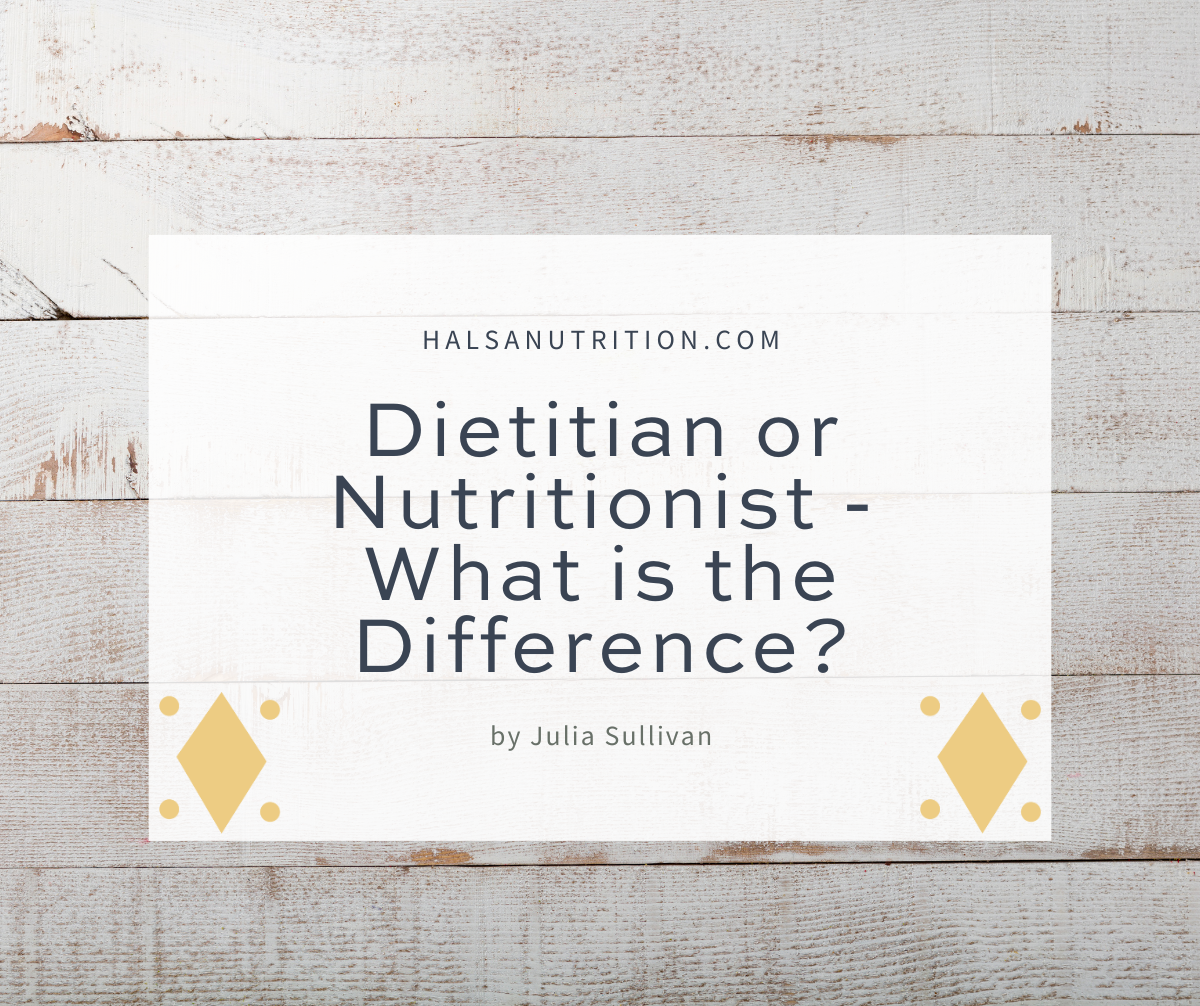
Dietitian or Nutritionist – What is the Difference?
Estimated reading time: 5 minutes
by Julia Sullivan
You may not know, but there is a big difference between a Registered Dietitian and a Nutritionist. Oftentimes, a lack of education blurs the line between the fields of work and what they do. When there is a lack of knowledge about these two professions, people seeking help may not get the proper help they need. To clear the confusion, here are the major differences between a Registered Dietitian and a Nutritionist.
What is a Registered Dietitian?
A Registered Dietitian (RD) or Registered Dietitian Nutritionist (RDN) is a healthcare professional with a bachelor’s or master’s degree in dietetics and a national credential from the Commission on Dietetic Registration.
What can Registered Dietitians do?
RDs can provide evidence-based nutrition counseling, medical nutrition therapy (MNT), and dietary assessment for individuals with specific health conditions. They are the professionals who can help you with what you need to fuel your body and mind. Dietitians work in a variety of settings, including health care facilities, private practices, schools, public health agencies, sports organizations, and the food industry.
What are the requirements to become a Registered Dietitian?
Dietitians have specific education and licensure requirements depending on the state in which they practice. The RD/RDN requirements include:
- Have a bachelor’s degree from an accredited program, but now, most of the time, master’s degrees are required
- Complete 1,000 hours of supervised practice in the field, pass a national exam, and gain licensure in their state of practice
- Maintain their license by completing a set amount of continuing education hours in a 5-year cycle
- Follow the code of ethics, which protects their patients from discrimination and the leaking of personal information
Often, RDs obtain special training to better counsel people with different goals and conditions. They might earn specific certifications such as:
- Sports dietetics (CSSD)
- Pediatric nutrition (CSP)
- Eating disorder specialist (CEDRD)
- Obesity and weight management (CSOWM)
- Diabetes care and education (CDCES)
- Gerontological nutrition (CSG)

What is a Nutritionist?
A nutritionist is a general term for someone who provides nutritional advice and guidance. They tend to have backgrounds in education and sometimes a bachelor’s or master’s degree in health, nutrition, or a related field. They may have completed an online or in-person nutrition certification course, but don’t have the training and licensure requirements of an RD. Because the word “nutritionist” is not regulated like “dietitian,” anyone can call themselves a nutritionist. Nutritionists tend not to be nationally certified, as they have not completed all the required exams to become medically recognized.
What can a Nutritionist do?
Nutritionists may give you general advice about nutrition, wellness coaching, or food planning, but may not be qualified to provide medical nutrition counseling. Since many states don’t offer licensure for nutritionists, they do not need to follow the same code of ethics as an RD. It’s common to see someone with the self-proclaimed title of a nutritionist giving out nutritional advice and information on social media platforms to get people’s attention.
What are the requirements to become a Nutritionist?
There is no specific education course for becoming a nutritionist. It depends on whether or not your state requires licensure to practice. Most states require either a master’s or bachelor’s degree in a major related to nutrition. For example, in Massachusetts, it is required to have a license to practice nutrition. Some non-licensed nutritionists may complete certifications or alternative education paths, like:
- Nutrition coach – This requires an online certification from accredited sources like the National Academy of Sports Medicine (NASM).
- Associate’s degree in nutrition – Allows people to get entry-level positions in the nutrition field, such as a dietetic technician.
- Volunteering and internships – Allow people to gain experience in nutrition to enhance their skills.
Summary of the differences
All in all, there is a clear difference between a Registered Dietitian and a Nutritionist. While seemingly having similar goals of helping people nourish themselves better, Registered Dietitians have far more education in the medical sense than Nutritionists. There is more work and experience that goes into becoming a Registered Dietitian. While many nutritionists may be excellent and give out evidence-based information, there is less regulation around their training and work.
It’s important to make sure that while you are on the search for someone accredited to give you nutrition advice, you research to determine what works best for YOU. Finding someone who understands you and your goals is the more important factor. Always do your research before getting incorrect information from someone who may not possess the level of qualification you need. Educate yourself on the differences between the two fields and ensure it is what you need to succeed.
Resources
Additional posts you might like
- Health Benefits of Intuitive Eating
- HAES – A Better Approach to Health and Weight
- How Much Protein Do Adults Really Need?
- How to Create Satisfying Snacks
About the Author
Julia Sullivan is a senior, exercise science-allied health major at Endicott College. She’s on the path to becoming an Exercise Physiologist with an interest in cardiac nutrition. Her interests and passions lie in helping people recover from injury and become healthier to enjoy life to the fullest.
This article was edited and reviewed by Maria Adams, MS, MPH, RDN, LDN, a registered dietitian and Certified Intuitive Eating Counselor. Maria takes a weight-inclusive approach and helps individuals rediscover the joy of food, eat to feel their best, and heal from chronic dieting and disordered eating. She holds a Bachelor of Science Degree in Nutrition Science, a Master of Science in Nutrition Communication, and a Master of Public Health.
Leave a Reply